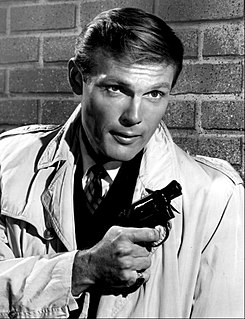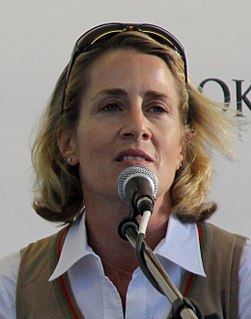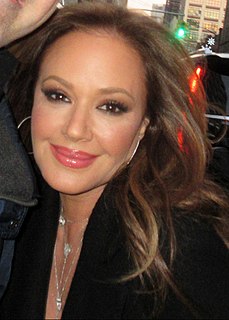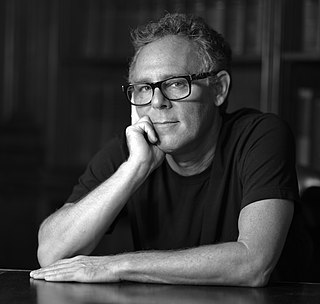A Quote by Charlie Brooker
[British television series] Hammer House of Horror. I used to really enjoy these one-off stories where often there would be an incredibly cruel twist. A good example is the episode with Burgess Meredith and there's a nuclear war and he drops his glasses. To this day, you can show that to anyone and they'll go "Bwrrrrrrrr!" You know, sort of wander away shuddering.
Related Quotes
Horror would not annoy a soldier any more than the sight of a hammer annoys a carpenter. It is sentimental to pretend that horror is not the tool of the soldier, just as the hammer is the tool of the carpenter. We live off death and the threat of death and we must take it calmly and use it well.... Eventually I came to enjoy killing, as a pianist enjoys the Czerny which keeps his fingers limber for the Beethoven.
We do want the freedom to move scenes from episode to episode to episode. And we do want the freedom to move writing from episode to episode to episode, because as it starts to come in and as you start to look at it as a five-hour movie just like you would in a two-hour movie, move a scene from the first 30 minutes to maybe 50 minutes in. In a streaming series, you would now be in a different episode. It's so complicated, and we're so still using the rules that were built for episodic television that we're really trying to figure it out.
I fell in love with stories watching a British television puppet show called 'Thunderbirds' when it first came out on TV, about 1965, so I would have been 4 or 5 years old. I went out into the garden at my mom and dad's house, and I used to play with my little dinky toys, little cars and trucks and things.
One of the most fun characters I played on a television series, which didn't last long... was a show called 'American Gothic' that Shaun Cassidy created. I would have loved to have done that show forever. That character was so funny yet demonic. It was really good writing and a really good idea. I loved all the people on the show.
Wasn't that a wonderful thing that I had a chance to work with more great actors, big stars, than just about anyone in the history of Hollywood? And some days I didn't know with whom I'd be standing face-to-face, and I was so impressed because they were all really wonderful people. And when you work with Burgess Meredith, Frank Gorshin, George Sanders as Mr. Freeze, it's a wonderful experience.
I feel like 'Gossip Girl' isn't really 'Gossip Girl' anymore when they're away at school because they don't go to NYU; they go to, like, Yale and Brown. New York City is just as much a character as anyone else in the books, and I was really sort of reluctant to show them off in their separate college worlds.
The teacher always used me as an example to the class of good English and good storytelling because we all had to write the same stories. But she used to make me go out front - which I hated - and read my story to the class and I would get huge applause. Not because of who I was but because they truly enjoyed the stories I wrote.
I don't have to worry about setting a good example every day for the purpose of setting an example for Scientology. We should all set a good example in life, but this was with an agenda. Now it's about accepting what is. I have no agenda other than to enjoy my life and enjoy my time with people, for however long it goes...Because I was never really able to enjoy my life. I always had to go to Scientology or give my money to Scientology or give my time to Scientology, and now I'm just able to enjoy what is in my life. I don't have anywhere to get to. This is it.
Personally, I think government is a tool, like a hammer. You can use a hammer to build or you can use a hammer to destroy; there is nothing intrinsically good or evil about the hammer itself. It is the purposes to which it is put and the skill with which it is used that determine whether the hammer's work is good or bad.


































